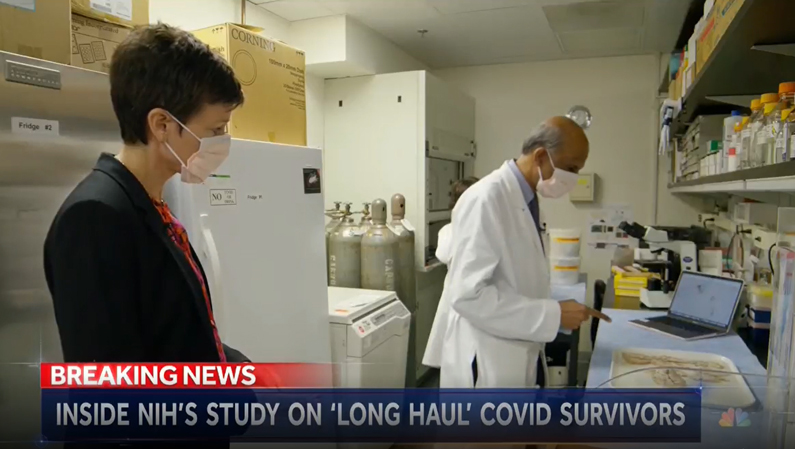NIH supports billion dollar "longhauler" initiative
Study to identify causes, prevention and treatment for long COVID

At the start of 2021, NIH Director Dr. Francis Collins announced a billion-dollar initiative to identify the causes, means of prevention and treatment of individuals who have been sick with COVID-19 and have not fully recovered. These individuals are often referred to "long haulers" or those with "long COVID." As people experiencing long COVID continue to experience symptoms past the time that they've recovered from the initial stages of COVID-19 illness it can often affect their livelihood and quality of life.
Long hauler symptoms may include fatigue, shortness of breath, brain fog, sleep disorders, fevers, gastrointestinal symptoms, anxiety and depression, which can occur for months and range from mild to devastating. New symptoms are currently emerging and are still being defined and these symptoms can be referred as Post-Acute Sequelae of SARS-CoV-2 infection (PASC).
Last December, Congress provided $1.15 billion to fund four years of NIH-supported research into the prolonged health consequences of SARS-CoV-2 infections. A panel composed of experts worked diligently to identify the most pressing research questions and the areas of the greatest opportunity to address this emerging public health priority.
An NBC segment called Life after Lockdown took a look inside NIH's initiative on "long haulers." Neurologist Dr. Avindra Nath, Clinical Director in the Division of Intramural Research at the National Institute of Neurological Disorders and Stroke, studied thirty brains from individuals with COVID.
Some of the patients had died suddenly despite not having serious symptoms before their deaths. Researchers found that long hauler symptoms similarly do not seem follow a pattern. Some patients can experience mild symptoms while other symptoms can be incapacitating.
Dr. Nath reviewed abnormal and dark spots in blood vessels on the brain which were identified by high resolution magnetic resonance imaging and found that most of these patients had inflammation and leaky blood vessels when their tissues were examined. He hopes his research on the brain can help provide some answers on the long-lasting effects of COVID-19. The NBC medical unit surveyed 64 clinics across the county who are only treating long haulers. They found over 10,000 people have been seen but reported that currently there is no agreed upon treatment.
Through this initiative, NIH's goal is to learn more and understand how SARS-COV-2 may lead to "long hauler" symptoms and develop ways for treatment and prevention.
"[NIH's research] program is uniquely positioned to conduct deep phenotyping of patients with long-COVID and conduct early phase clinical trials in this patient population. These studies will interface with an ongoing study on myalgic encephalomyelitis/chronic fatigue syndrome and another study about to be initiated on Gulf war syndrome, both of which seem to have a substantial symptomatic overlap with long COVID," said Nath.
As this research has evolved, NIH started RECOVER, a research initiative to understand, prevent and treat PASC (post-acute sequelae of SARS-CoV-2 - the term scientists are using to study the potential consequences of a SARS-CoV-2 infection). PASC includes long COVID.
The scientists and health professionals involved in RECOVER research are engaging people whose health is adversely affected by this virus.
- Janice Duran